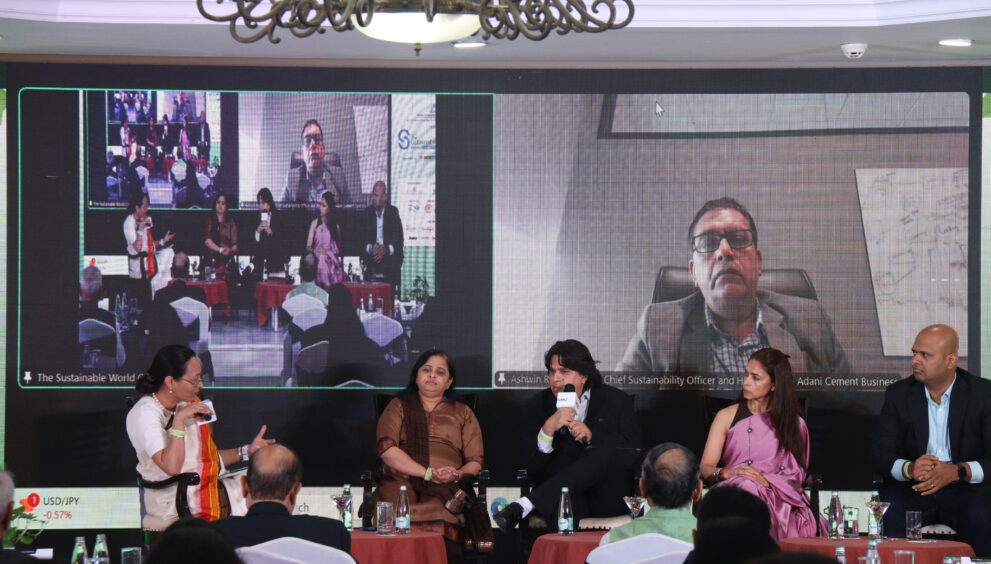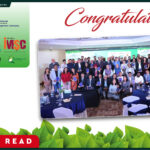India’s Journey To Net Zero Exciting Yet Challenging: Experts

The experts call for an approach that involves innovative thinking backed by a climate financing framework to realise the goals
Kishan Singh
As India Scales its climate ambitions with the target of reaching net-zero status by 2070, the country has worked on creating a framework which strives to provide a comprehensive approach towards renewable energy that integrates government policies and technological advancements along with financial incentives.
It has become non-negotiable to assess the climate resilience of the economy especially when the nation has aimed to achieve 50 per cent cumulative electric power installed capacity from non-fossil fuel-based energy resources by 2030. The experts have called for a more innovative approach to sail the sea smoothly as they have advised against moving with ‘business as usual’.
Status Of Developed And Sustainable
The world is full of policies, what lacks is the implementation part of them. As the country remains committed to its goals of being sustainable, it has also aspired to achieve the status of Viksit Bharat (developed India) by 2047. The industry leaders in the segment have pointed towards this challenging aspect.
“The challenge for India is that we also have developmental goals. If we look at Viksit Bharat, even the government has called out saying that we need to become a developed country with positive well-being and health for all our citizens, but at the same time, we will take climate action,” stated Prashanth V, Director- Sustainability SA, Hindustan Unilever.
While the country has worked towards the renewable energy segment, the rise in the production in the fossil-fuel segment has the experts worried. The urgent need to have more compliant policies has become the need.
“Around 50 per cent of our electricity should be from renewable spaces, from non-fossil fuels. When you look at that kind of landscape, there’s a huge amount of work that has happened as well. But you have to look at the fossil fuel side of it as well. The coal production has gone up from the last year to now. That’s where you know that business as usual is not a solution, you need to come up with innovative solutions,” mentioned Rinika Grover, Head of Sustainability and Corporate Social Responsibility, Apollo Tyres.
The Climate Financing Obstacle
While the projects planned by the big corporations regarding their efforts towards sustainability look good during the presentations, the real issue begins with securing and applying finance for large-scale climate-oriented projects. The importance of applying finance in a productive and remunerative manner is what requires effort.
“We have found one roadmap which is the net-zero roadmap till 2050 for the Indian cement industry. After finalising all possible levers, our conclusion was to reduce it through carbon capture which is an emerging and very expensive technology as of now. We are just wondering how to fund the carbon capture installation. We need to have a proper framework for the climate financing and how the industry can benefit from that,” highlights Ashwin Raykundaliya, Chief Sustainability Officer and Head PMCG, Adani Cement Business.
The Lifecycle Approach
Before any project is fully introduced, the corporations go through the process of pilots and testing to ensure that the projects that they are trying to work on are market-worthy and scalable while being efficient. The experts have reflected upon the lifecycle approach in this regard when dealing with sustainability.
“The lifecycle approach is a very good tool in terms of comparing what change you are bringing about based on your earlier designs and products. You can identify those hotspots where you can take meaningful actions to bring down the overall footprint of the product. It is about what you can take to your consumers through your products as a concept on sustainability, looking at its impact also during the use phase,” emphasised Tejashree Joshi, Head – Environmental Sustainability, Godrej and Boyce.
There has been a major discussion around green-efficient codes, especially in the information technology sector. The companies are constantly seeking to ensure they move towards a framework that is more green-efficient, as highlighted by the experts.
“For all IT companies, coding is the key. Even if you are doing something on the PLCs or on the automation part of it or how the AI is being looked at, the important aspect is whether my codes are green or not. We have made a platform called greencoder which will convert every code 30 to 40 per cent more green-efficient,” stated Sandeep Chandna, Chief Sustainability Officer, Tech Mahindra.
While moderating the session at the Sustainable World Conclave 2024, Chandni Khosla, Board Advisor, Sustainability and Sustainable Finance reflected upon the importance of resource efficiency. “Resource efficiency and circularity are two very efficient teams in a planet where we are really challenging planetary boundaries as far as we continue to extract critical minerals resources,” Kholsa stated.











































































































































































































































































































































































































































































































































































































































































































































































































































































































































































































































































































































































